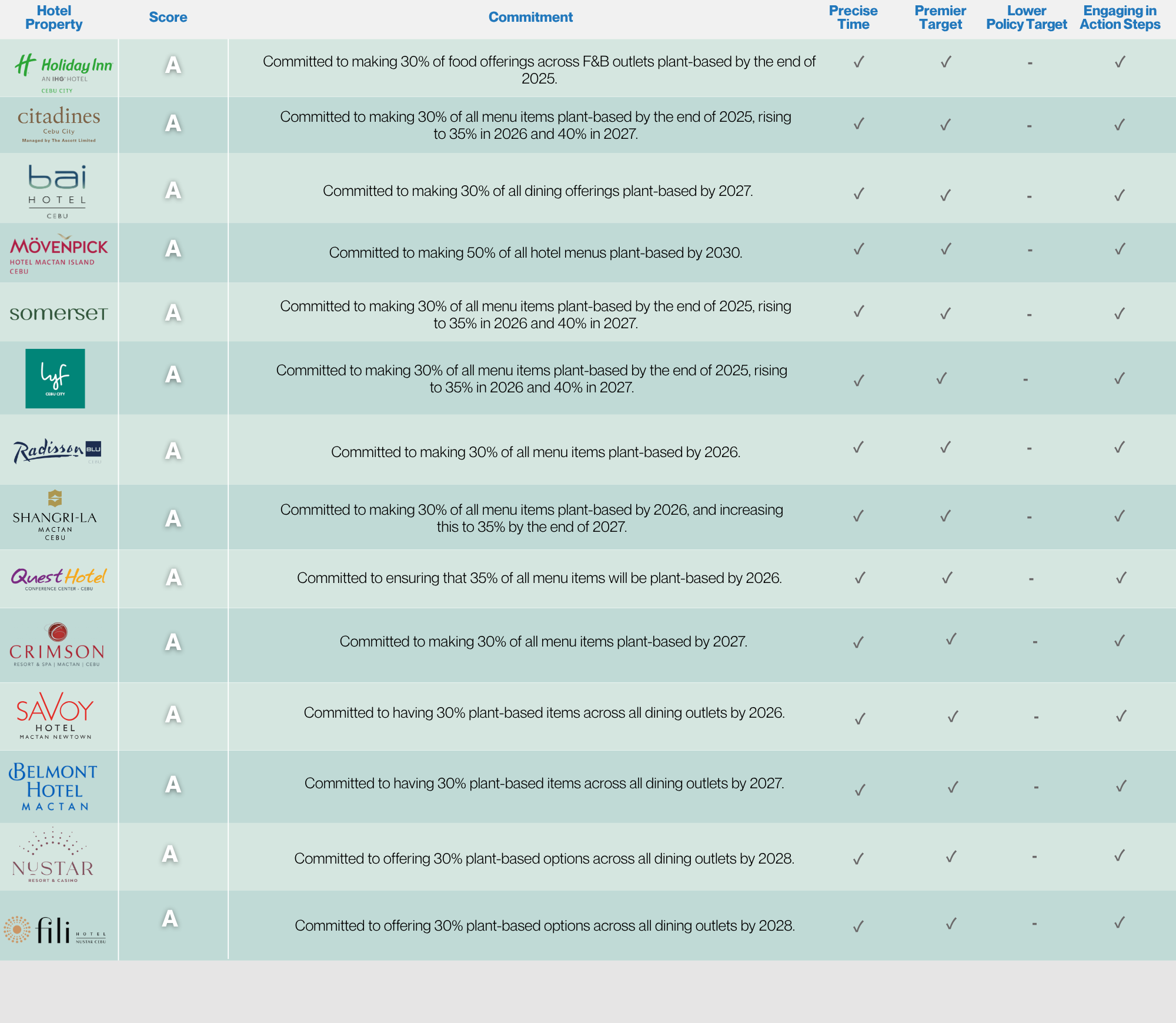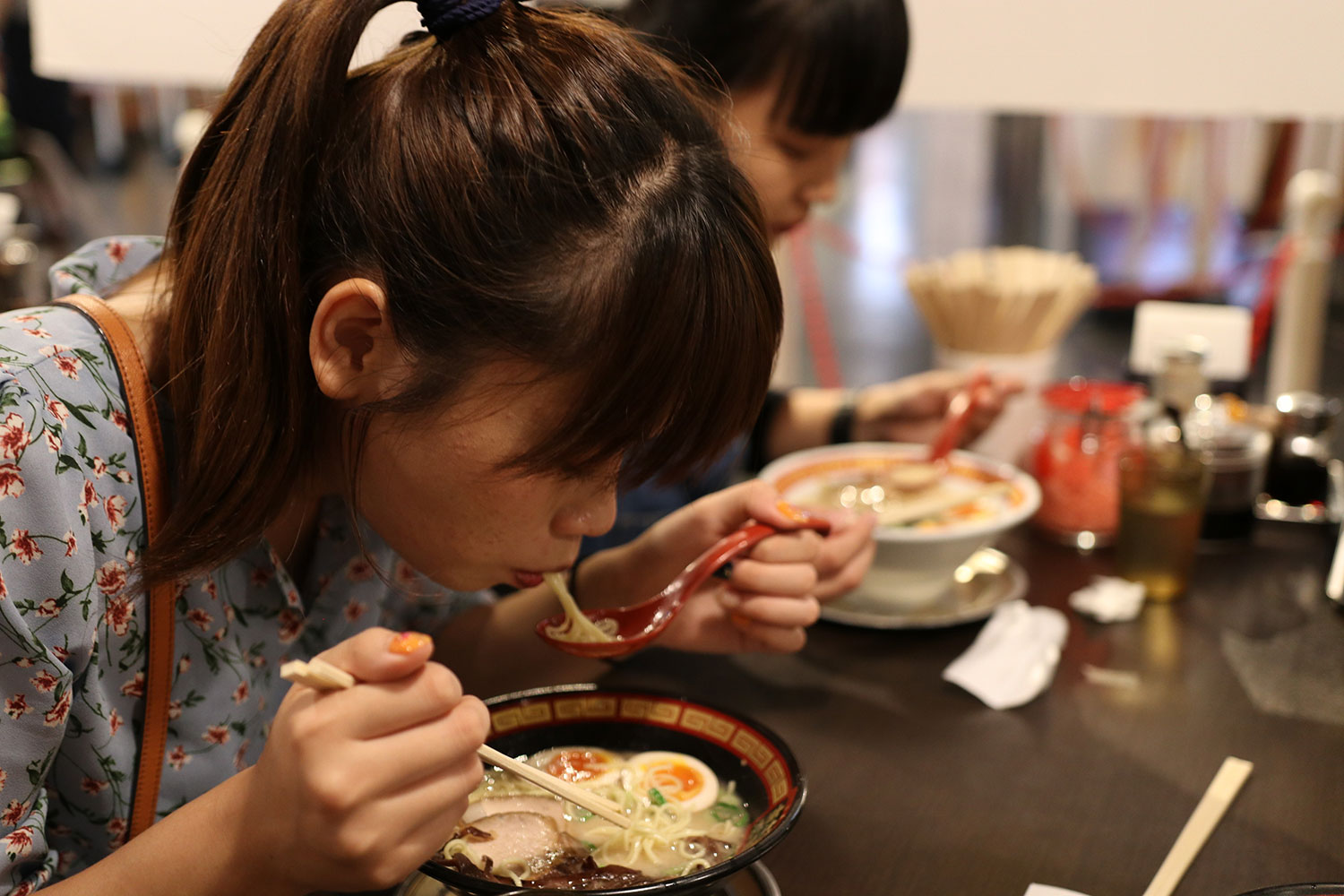October 15, 20252025年 10月 15日

Chefs dice locally sourced vegetables, simmer coconut-based curries, and plate vibrant salads—the expanding repertoire that now defines sustainable dining across fourteen leading Cebu properties. By 2030, between 30% and 50% of dishes served at these hotels will be plant-based. The province isn’t following trends. It’s setting them.
A-Grade Ratings Signal Industry Leadership
Lever Foundation’s Cebu Hospitality Plant-Based Food Scorecard 2025 awarded A-grade sustainability ratings to fourteen hotels committed to transforming their menus. Not aspirational goals. Binding commitments with implementation timelines, some starting as early as late 2025. This represents the most ambitious hospitality sustainability pledge by any Philippine province.
Nine properties demonstrated leadership through individual sustainable dining commitments to make at least 30% of menus plant-based: bai Hotel Cebu City, Radisson Blu Cebu, Shangri-La Mactan Cebu, Quest Hotel and Conference Center Cebu, Crimson Resort and Spa Mactan, Savoy Hotel Mactan Newtown, Belmont Hotel Mactan, NUSTAR Resort and Casino, and Fili Hotel NUSTAR.
Five additional hotels earned recognition through parent group policies. Citadines Cebu City, Lyf Cebu, and Somerset Cebu operate under The Ascott Limited Philippines—the first hotel group in the country to announce a nationwide 30% plant-based commitment. Meanwhile, Holiday Inn Cebu City implements IHG Philippines’ sustainable dining initiative. Mövenpick Hotel Mactan Island Cebu will meet Accor’s global policy requiring at least 50% plant-based or meat-free menus.

Implementation Transforms Kitchen Operations
“Cebu’s hospitality has always been about caring for people and our community, and this commitment extends that care to the environment,” said Mia Singson-León, General Manager of Quest Hotel Cebu and President of the Hotel, Resort & Restaurant Association of Cebu, Inc. “That’s why this collective shift is more than just a tick in the box for all of us. We are serious about expanding sustainable choices that care for both our guests and the planet.”
Each commitment requires menu restructuring, supplier network expansion, and kitchen staff training on plant-based preparation techniques. Consequently, procurement protocols shift toward local vegetable suppliers. Recipe development accelerates. Storage systems adapt to accommodate different ingredient profiles.
Lever Foundation provided technical support throughout the process, connecting hotels with suppliers and mapping implementation pathways. “The hospitality leaders in Cebu have shown remarkable vision in embracing plant-based initiatives,” said Marielle Lagulay, Sustainability Program Manager at Lever Foundation. “What inspires me most is their willingness to adapt in response to the ever-pressing challenges we face. They clearly see why this shift is important and why action must be taken now. Cebu is setting a powerful example that will inspire not only the Philippines but the entire Southeast Asian hospitality industry.”
The environmental metrics support the shift. Research from the United Nations, World Health Organization, and leading universities shows plant-based foods generate substantially fewer greenhouse gas emissions, reduce food waste, and require significantly less land and water than animal proteins. Additionally, these options offer guests low-cholesterol, high-fiber, and nutrient-rich alternatives.








